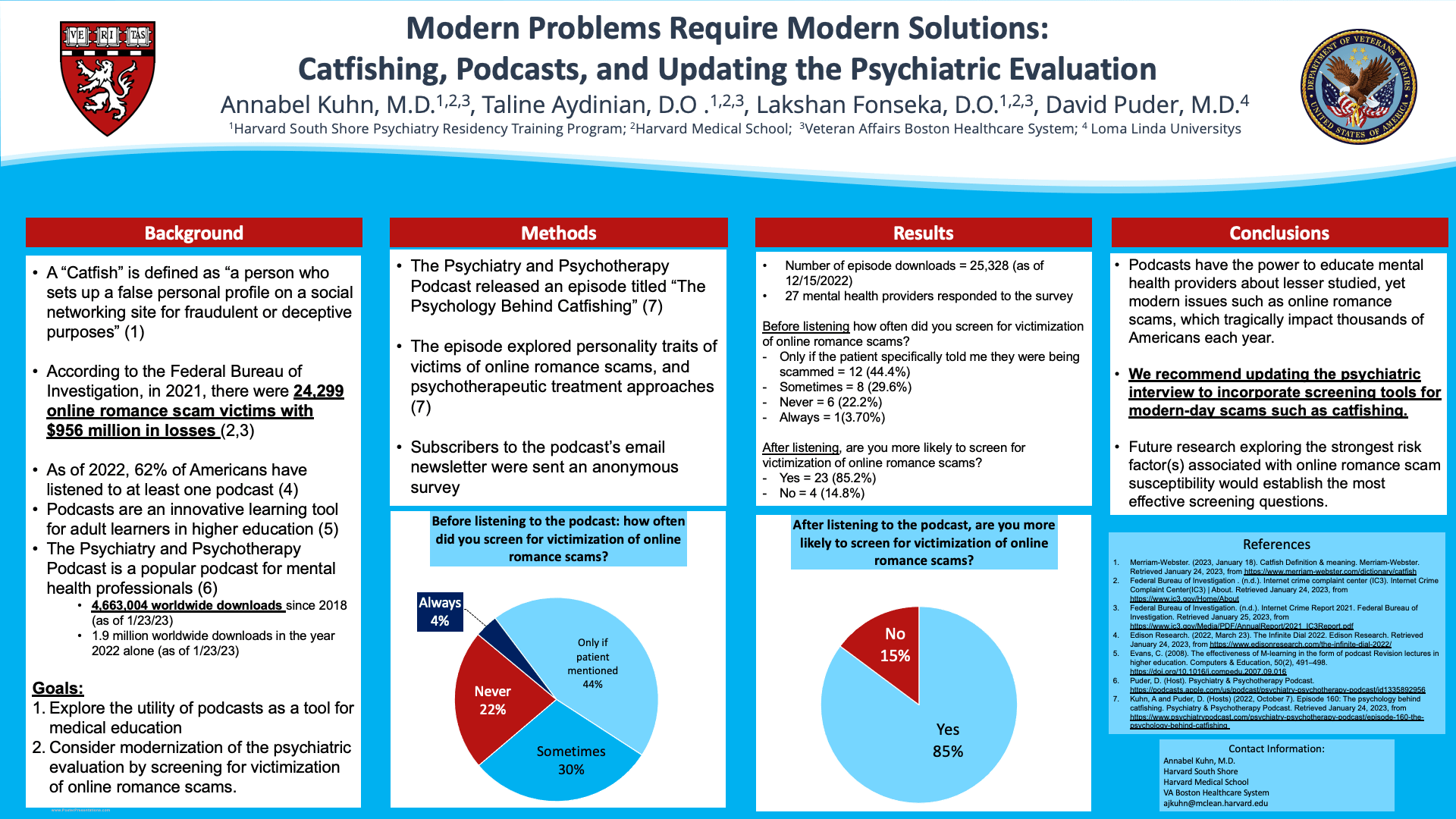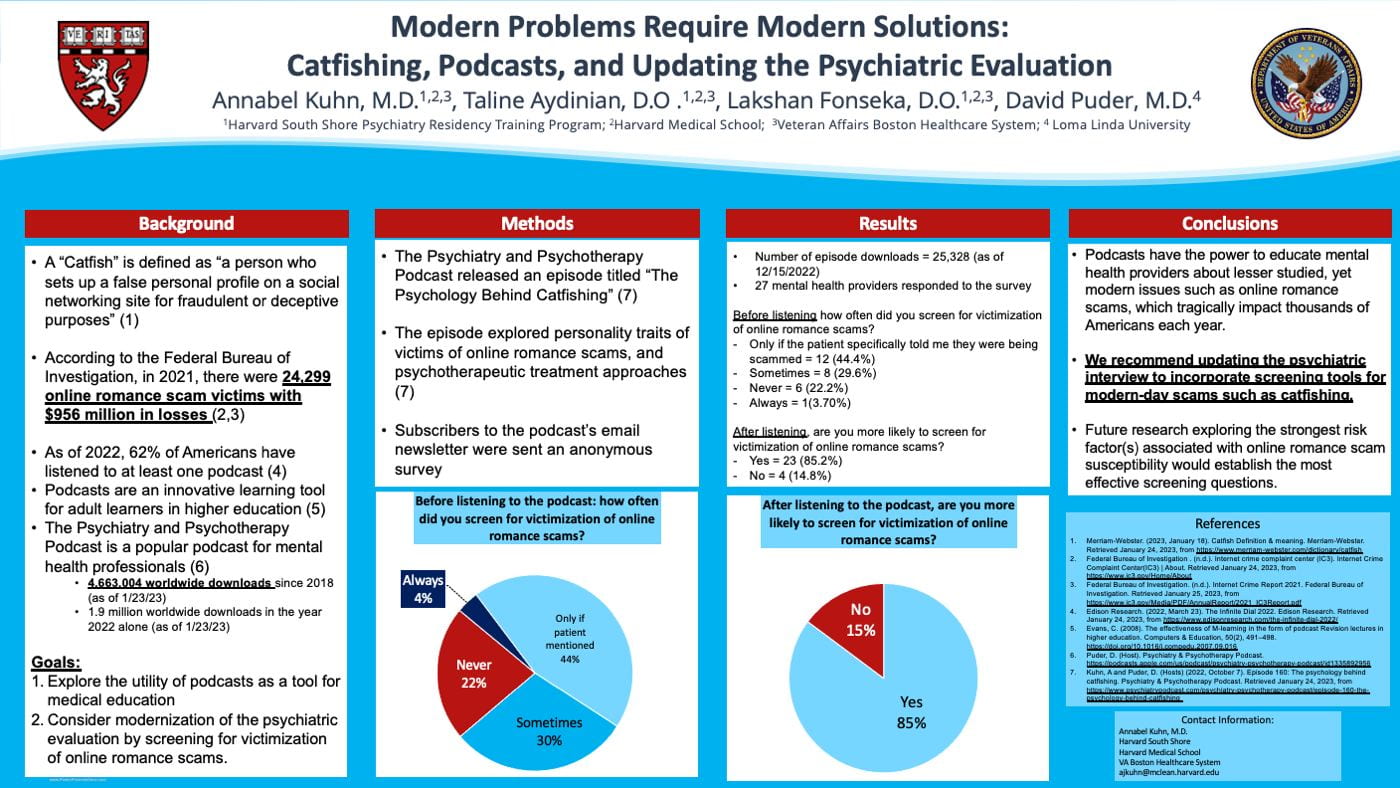Scientific Abstract
Background/Introduction: A “Catfish” is defined as “a person who sets up a false personal profile on a social networking site for fraudulent or deceptive purposes” (1). According to the Federal Bureau of Investigation, in 2021, there were 24,299 online romance scam victims with $956 million in losses (2,3). As of 2022, 62% of Americans have listened to at least one podcast (4). Podcasts are an innovative learning tool for adult learners in higher education (5). The Psychiatry and Psychotherapy Podcast is a popular podcast for mental health professionals (6) with 4,663,004 worldwide downloads since 2018 (as of 1/23/23) and1.9 million worldwide downloads in the year 2022 (as of 1/23/23).
Goals: The goals of this poster are to explore the utility of podcasts as a tool for medical education and to consider modernization of the psychiatric evaluation by screening for victimization of online romance scams.
Methods: The Psychiatry and Psychotherapy Podcast released an episode titled “The Psychology Behind Catfishing” (7). The episode explored personality traits of victims of online romance scams, and psychotherapeutic treatment approaches (7). Subscribers to the podcast’s email newsletter were sent an anonymous survey
Results/Findings: The number of episode downloads was 25,328 (as of 12/15/2022). 27 mental health providers responded to the survey. One question was, “Before listening, how often did you screen for victimization of online romance scams?”. 12 individuals (44.4%) responded “Only if the patient specifically told me they were being scammed”. 8 individuals (29.6%) responded “sometimes”, 6 individuals (22.2%) responded “never”, and 1 individual (3.70%) responded “always”. Another question was “After listening, are you more likely to screen for victimization of online romance scams?”. 23 individuals (85.2%) responded yes, and 4 individuals (14.8%) responded no.
Future Directions/Conclusion: Podcasts have the power to educate mental health providers about lesser studied, yet modern issues such as online romance scams, which tragically impact thousands of Americans each year. We recommend updating the psychiatric interview to incorporate screening tools for modern-day scams such as catfishing. Future research exploring the strongest risk factor(s) associated with online romance scam susceptibility would establish the most effective screening questions.
Search posters


